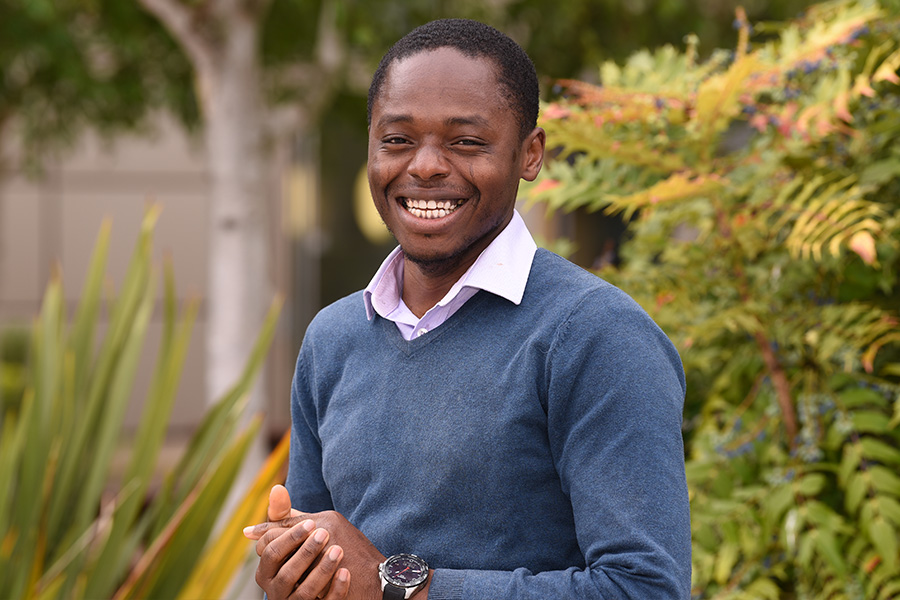Wellcome Sanger Institute
We are a world-leading genomics research institute. Our work helps improve human health and understand life on Earth.
We tackle some of the most difficult challenges in genomic research. This demands science at scale; a visionary and creative approach to research that pushes the boundaries of our understanding in ever new and exciting ways.
We recruit locally, nationally and internationally and welcome applications and expressions of interest at every level. Sanger Institute is an equal opportunities employer and positively encourages applications from suitably qualified and eligible candidates regardless of sex, race, disability, age, sexual orientation, gender reassignment, religion or belief, marital status, or pregnancy and maternity.
Postdoctoral Fellowships
When you join us as a Postdoctoral Fellow you will benefit from a unique learning environment. We are proud to provide an opportunity for skilled and imaginative candidates to join a first-class research environment and make impactful contributions to our world-leading scientific programmes, with huge development opportunities. At Sanger, you will be making a significant contribution to the progress of biomedical research using data unmatched by other institutes in Europe.
We train the best early careers scientists from around the globe to be a part of inspiring and cutting-edge scientific research. We pride ourselves in creating an inclusive culture with remarkable resources and facilities where we can encourage creativity and celebrate diversity.
Research with Impact
Training and developing scientists is key to our ongoing research programmes at the Sanger Institute. You will make a significant contribution to the progress of biomedical research.
To support you, we have developed a career model for Postdoctoral Fellows where you will hold a time-limited position. These tend to run for three to four years. (Periods on third-party funding will count towards this timeframe.)
Meet our Postdocs

What has led you to the Sanger Institute?
I was incredibly lucky to get into the world of genomics when I did, as it was an opportunity to use computers and software to advance the field of biology. I was therefore part of a team that generated several high-quality genomes for an insect vector.
I completed my PhD at the Natural Resources Institute, University of Greenwich in 2019, where I studied the plant virus vector, Bemisia tabaci whiteflies. I recognised that generating several genomes for plants and animals presents an opportunity: using such information to generate scientific insights. I therefore thought that I needed to consider positioning and getting training for using post-genome assembly data. I looked out for opportunities to prepare myself and train around making use of genome assemblies for answering biological questions. This led me first to NIAB and then to Sanger.
I did my first postdoc at NIAB, where I focused on studying the response of wheat to incursions of novel strains of yellow rust and on determining quantitative trait loci associated with wheat resistance response. At NIAB I had my first exposure to statistical genetics and how to use the recently generated wheat genome for fine-tuning the wheat genetic map and thereby more reliably conduct a genome-wide association study. I thereafter joined the Lawniczak’s lab to work on Anopheles evolutionary genetics. Unlike my work on B. tabaci, mosquito genomics is far ahead, and rather than just generating genomes, the research is already utilising the enormous genomic information for studying mosquito population genomics. The opportunity was also unique to me because, just like B. tabaci, there are species complexes in Anopheles and both insects are very effective vectors.
It became very easy to transition into this research field and I have been enjoying the learning and research journey. Sanger is also unique in that I can study a massive number of populations simultaneously to generate actionable insights that would in turn be useful to national malaria control programs across the globe in their malaria surveillance and control efforts.
What is the most rewarding aspect of doing a postdoc at Sanger?
Being able to conduct research ‘at scale’. I believe Sanger is uniquely positioned to enable researchers to conduct research at a scale rarely possible in any other biological research institutions.